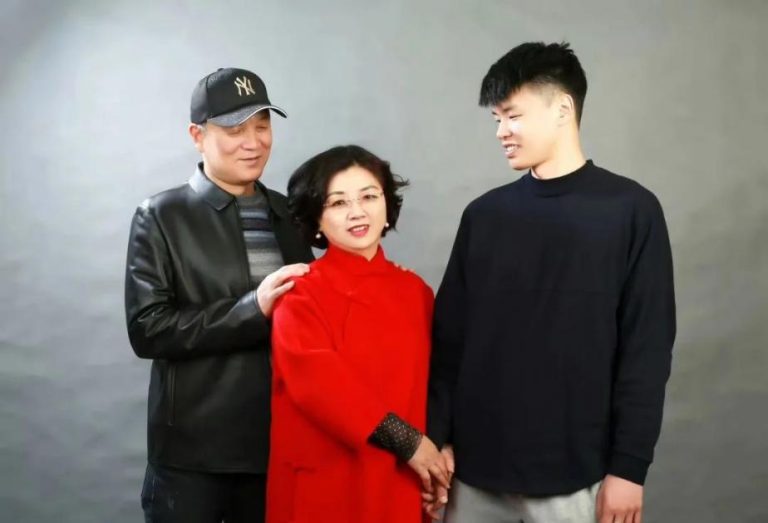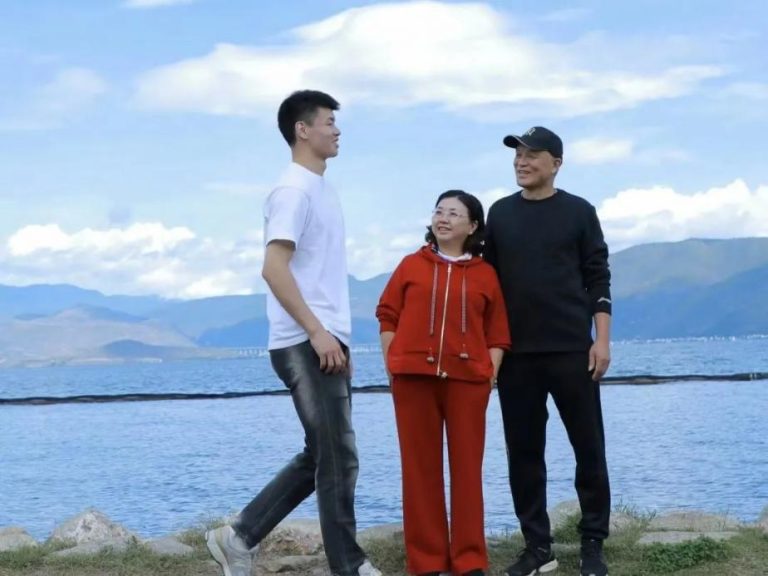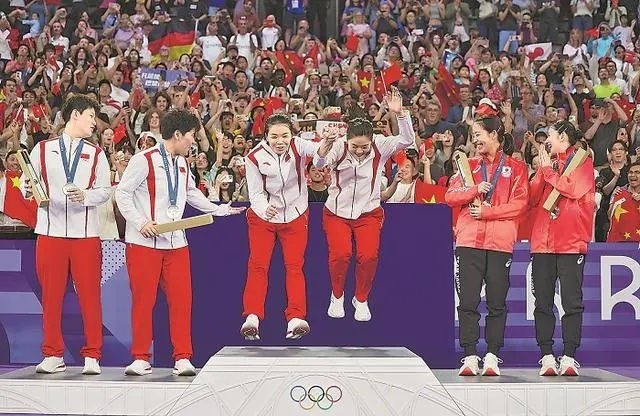Family: The First Classroom of Life
Family is the first classroom of life, and parents are a child’s first teachers.
The Zhejiang Women’s Federation, together with the Zhejiang Provincial Department of Education and Zhejiang Daily Group, launched the “Zheli: Effective Parenting—Province-wide ‘Hundreds and Thousands’ Parent School Series Activities,” inviting parents across the province to share their insights on family education. Let’s take a closer look at Wang Yilu’s family from Xiuzhou!
“When I saw Wang Yilu win the championship on TV, I was in complete shock. I never imagined my son would become Jiaxing’s first Olympic champion,” recalls Wang Yilu’s mother, Fu Huihong, when thinking back to the summer of 2021.

The Path of Badminton: Accompanied by Growth
Badminton has accompanied Wang Yilu’s journey of growth. At 8, he began formal training, at 9, he was selected for the provincial team, and at 13, he entered the national team. Through countless training sessions, successes, and failures, his love and dedication to badminton never wavered. In 2021, Wang Yilu won the gold medal in the mixed doubles event at the Tokyo 2020 Olympics.
Nineteen years of hard work, from a child practicing in school to an Olympic champion standing on the highest podium, Wang Yilu’s journey was full of sweat and tears. Along the way, he was showered with flowers and applause, but none of it would have been possible without the discipline and love from his parents.
Persevering with a Strong Family Tradition
Since childhood, Wang Yilu has been guided by his family’s tradition of perseverance. “Perhaps it’s because I left home to join the military at 18, I always believed children should learn to be independent and strong,” shares Wang Yilu’s father, Wang Kuanyong, who once served in the military and had high expectations for his son.
When Wang Yilu joined the school’s badminton team, practice was from 6:30 to 8:30. Three years later, he entered the provincial sports school, maintaining two hours of daily training. Falls and injuries were common, but Wang Yilu’s father always offered encouragement. No matter how difficult it got, Wang Yilu would grit his teeth and push through.

Overcoming Challenges with Mental Strength
“His ability to win the championship is inseparable from his strong mental resilience. Since he was young, Wang Yilu had a great mindset,” says his mother, Fu Huihong. As a child, Wang Yilu was smaller and weaker than other team members, which put him at a disadvantage during training. But during matches, his calm demeanor helped him recover from early setbacks, allowing him to slowly regain control.
Of course, the path to becoming an Olympic champion wasn’t always smooth. Wang Yilu had moments of doubt and once even considered quitting. “After losing a match one year, Wang Yilu felt he couldn’t beat either the top or younger players. He was devastated and wanted to give up badminton,” recalls Fu Huihong. As a mother, she felt heartbroken, but when Wang Yilu sought her advice, she firmly told him to persevere. “I told him, giving up too easily would mean wasting all the hard work he had put in over the years.”

Letters: A Tangible Form of Love
As Wang Yilu grew older, he spent most of his time between training and competitions, only returning home for a day or two during the New Year, and sometimes not at all for an entire year. However, his parents made it a priority to attend his domestic matches whenever possible.
Parental companionship is always limited, often constrained by time and distance. “I’ve always felt that letters have a special significance. Unlike other forms of communication, letters can be kept and reread over time,” says Fu Huihong. She made it a tradition to write letters to Wang Yilu before important matches. During the Olympics, she even handwrote a long letter, sent it to the national team in advance, and repeatedly reminded him, “Take care of yourself, get enough sleep…”
Each time Wang Yilu faced challenges, his mother would share her life experiences, offering wisdom and understanding. “I would try to put myself in his shoes and help him analyze the situation, but I always left the final decision up to him,” she adds.
Though the words written may be limited, each letter, sent across time and distance, carries immeasurable weight. They are filled with a parent’s love and care for their child, a lasting testament to their enduring bond.


